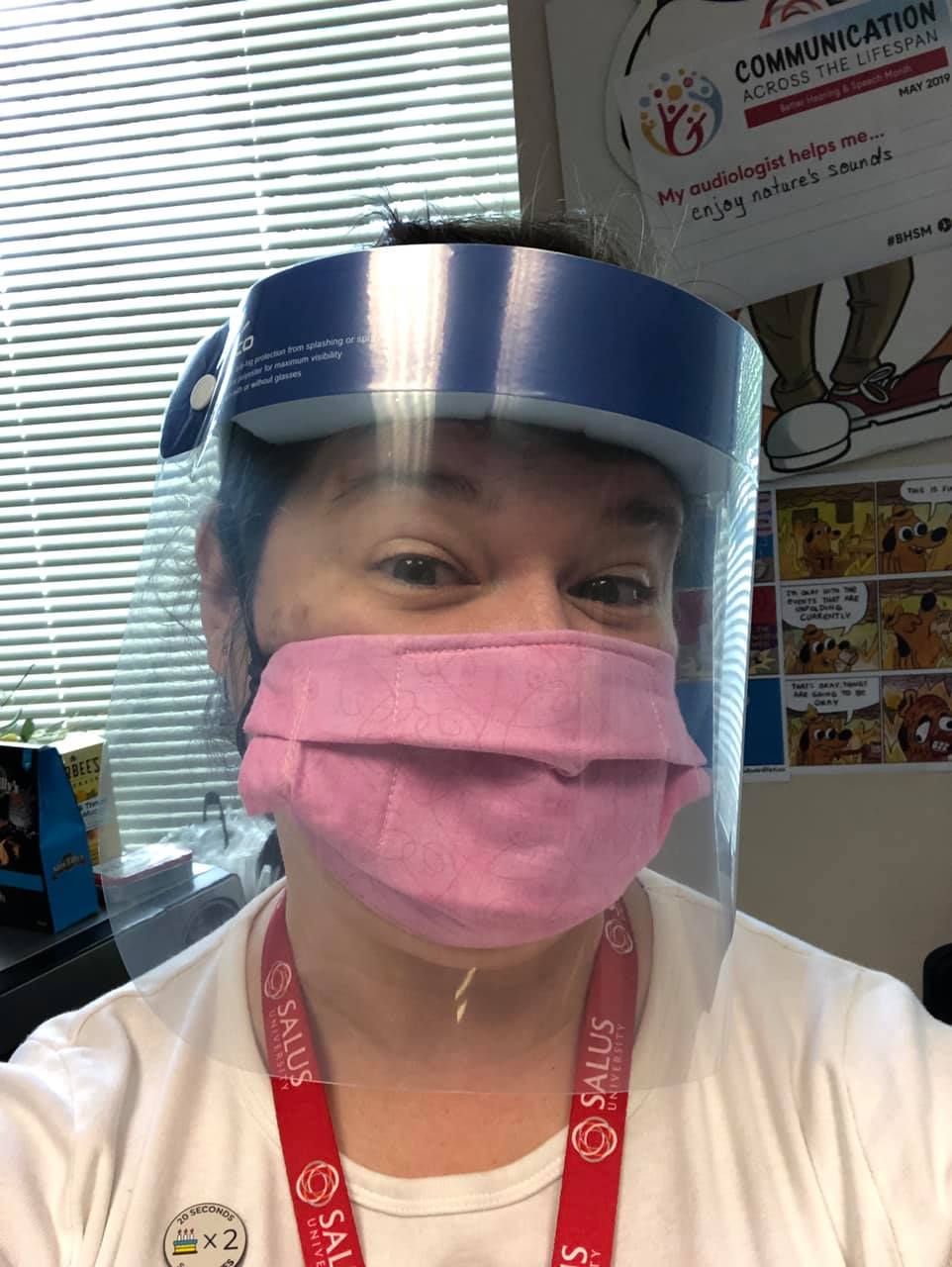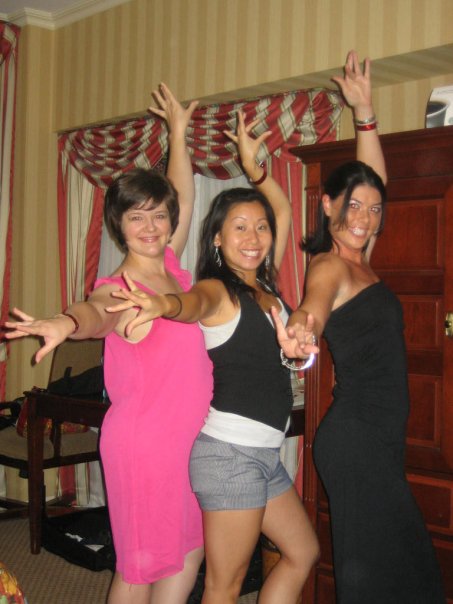Faculty Focus: Dr. Rebecca Blaha
 Rebecca Blaha, AuD, lead audiologist, clinical preceptor and assistant professor at Salus University’s Osborne College of Audiology and its clinical facility, the Pennsylvania Ear Institute (PEI), has had a variety of interests in her lifetime — playing the flute, salsa dancing, and powerlifting.
Rebecca Blaha, AuD, lead audiologist, clinical preceptor and assistant professor at Salus University’s Osborne College of Audiology and its clinical facility, the Pennsylvania Ear Institute (PEI), has had a variety of interests in her lifetime — playing the flute, salsa dancing, and powerlifting.
Some of those interests have stayed with her, and some have gone by the wayside over time. But one thing that hasn’t changed for Dr. Blaha is her interest in the art of hearing. “The most rewarding aspect is being able to solve the ‘riddle’ for my patients,” she said. “Each patient has different needs, which gives me the chance to be creative in identifying certain issues, and formulating individualized treatment options.”
It wasn’t always that way for Dr. Blaha. Prior to pursuing a career in audiology, she studied music for 14 years, earning a Bachelor of Music degree from the University of Maryland, College Park, and a Master of Music degree from The Ohio State University.
 “I honestly thought that I would be able to turn it (playing the flute) into a career and become an orchestral musician. I really wanted to be a soloist and travel and perform in that capacity. But those jobs are few and far between,” she said.
“I honestly thought that I would be able to turn it (playing the flute) into a career and become an orchestral musician. I really wanted to be a soloist and travel and perform in that capacity. But those jobs are few and far between,” she said.
Instead, she changed career paths and received her Master of Arts in Audiology from The Ohio State University. Dr. Blaha practiced for five years in Wilmington, Del., before joining Jefferson Balance & Hearing Center in the Department of Otolaryngology – Head & Neck Surgery at Thomas Jefferson University in Philadelphia. While working at Thomas Jefferson, Dr. Blaha completed her doctorate in audiology (AuD) through the University of Florida.
One of her colleagues at Jefferson was a Salus grad and had forwarded Dr. Blaha a job listing through the University’s Alumni Association. She joined Salus in 2012, first as a part-time contractor and then as a full-time audiologist. Her goal was, and still is, to increase her own skills as well as to encourage and inspire students with her enthusiasm for the profession.
Dr. Blaha is licensed in Maryland, Delaware and Pennsylvania in Audiology and is a member of the American Speech-Language Hearing Association, the American Academy Audiology and the Pennsylvania Academy of Audiology. Her specialties include diagnostic and hearing evaluation; fitting and dispensing hearing instruments and assistive devices; tinnitus management and aural rehabilitation.
She’s also a “triple crown winner,” being named the Outstanding Clinical Preceptor in 2014, 2015 and 2016 at PEI. When she’s not teaching Salus students, Dr. Blaha’s interests remain varied. Although she’s given up playing the flute, salsa dancing was an interesting and important social component for her when she first arrived in Wilmington.
When she’s not teaching Salus students, Dr. Blaha’s interests remain varied. Although she’s given up playing the flute, salsa dancing was an interesting and important social component for her when she first arrived in Wilmington.
“I didn’t really know anyone, so I thought why don’t I try salsa dancing so I can meet some people my own age. I didn’t know what I was getting into,” she said. “I took the first class and it was nothing like what I expected. But it’s where I met some of my closest friends.”
Although her interest in salsa dancing eventually fizzled, the friendships remained. “And, we’re still friends to this day, about 14 years now, just because we met through dance classes. It was a good gateway, it opened up a lot of the social scene,” she said.
More recently, Dr. Blaha has taken up powerlifting through a local health club. There, she’s worked with a trainer who introduced her to Olympic weightlifting. Despite health clubs currently being closed because of the COVID-19 pandemic, Dr. Blaha has kept up her workouts at home. So far, she’s been able to deadlift 175 pounds.  Among other “fun facts” about Dr. Blaha: She recently adopted a French bulldog named Otis; each year on Halloween she picks a character that she resembles — like Where’s Waldo — and dresses up as that character; and she makes elaborate decorations for the Osborne College of Audiology (OCA) table at the annual Salus holiday party.
Among other “fun facts” about Dr. Blaha: She recently adopted a French bulldog named Otis; each year on Halloween she picks a character that she resembles — like Where’s Waldo — and dresses up as that character; and she makes elaborate decorations for the Osborne College of Audiology (OCA) table at the annual Salus holiday party.
Moving forward, she believes the current pandemic will continue to shine a light on the need for healthcare providers to focus on infection control. “Honestly that’s one of the big things we discuss on a regular basis, how we make it safer for patients and students,” she said. “In the field of audiology, you are working with the most vulnerable population on a regular basis. You either see the youngest patients, infants that might have failed newborn screenings and are now being fit with amplification, or elderly people who already have comorbid conditions like diabetes disease and things that make them more susceptible.”
Dr. Blaha believes audiologists will continue to be even more vigilant in how they interact with their patients. “The issues of wearing masks long-term and how that will impact our patients and their ability to communicate effectively — it’s going to open up into some new areas,” she said. “It’s kind of exciting to think about. There are new problems to tackle and now you have a little bit more creativity to meet those new challenges.”